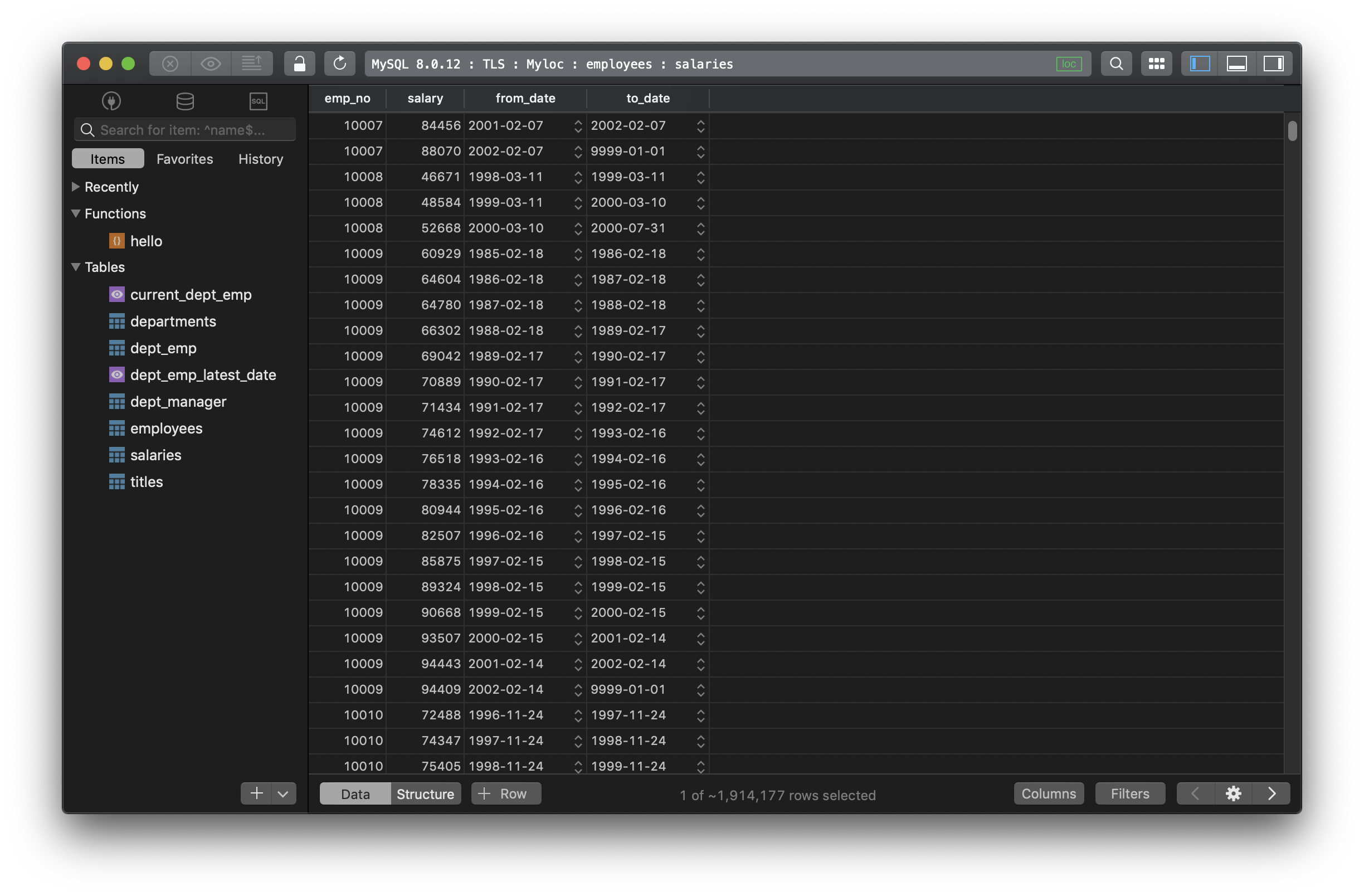Getting Started with SQL SELECT Query
What is the SELECT query in SQL?
SELECT is the most frequently used command in SQL, across any SQL database management systems. It’s used to retrieve data from a database using the given conditions, or no condition at all, then returns data in a table structure called a result set.
Learning how to use SELECT query is probably the most fundamental knowledge of using queries in SQL.
Syntax
Here is the generic syntax for a SELECT statement:
SELECT column_names
FROM table_name
[conditions]
;
To SELECT all available columns, instead of writing every column name:
SELECT *
FROM table_name
[conditions]
;
The conditions will be specified in the SELECT statement to narrow the result set. Here are some of the most commonly used optional clauses:
WHEREspecifies which rows to retrieve.GROUP BYrolls up rows using a shared attribute so that an aggregate function can process each group.HAVINGselects among the groups defined by the GROUP BY clause.ORDER BYspecifies an order in which to return the rows.ASprovides an alias which can be used to temporarily rename tables or columns.
Example
We have a table Playlist with two columns PlaylistId and Name
| PlaylistId | Name |
|---|---|
| 1 | Music |
| 2 | Movies |
| 3 | TV Shows |
| 4 | Audiobooks |
| 5 | 90’s Music |
| 6 | Audiobooks |
| 7 | Movies |
| 8 | Music |
| 9 | Music Videos |
| 10 | TV Shows |
| 11 | Brazilian Music |
| 12 | Classical |
| 13 | Classical 101 - Deep Cuts |
| 14 | Classical 101 - Next Steps |
| 15 | Classical 101 - The Basics |
| 16 | Grunge |
| 17 | Heavy Metal Classic |
| 18 | On-The-Go 1 |
You want to see only the records with PlaylistId higher than 10, use the SELECT statement:
SELECT
*
FROM
Playlist
WHERE
PlaylistId > 10;
And it returns:
| PlaylistId | Name |
|---|---|
| 11 | Brazilian Music |
| 12 | Classical |
| 13 | Classical 101 - Deep Cuts |
| 14 | Classical 101 - Next Steps |
| 15 | Classical 101 - The Basics |
| 16 | Grunge |
| 17 | Heavy Metal Classic |
| 18 | On-The-Go 1 |
Or you want to see the PlaylistId of the record named Classical:
SELECT
PlaylistId
FROM
Playlist
WHERE
"Name" = "Classical";
And the result is:
| PlaylistId |
|---|
| 12 |
Or you want to see data from the whole table Playlist:
SELECT * FROM Playlist;
The result is the data table.
| PlaylistId | Name |
|---|---|
| 1 | Music |
| 2 | Movies |
| 3 | TV Shows |
| 4 | Audiobooks |
| 5 | 90’s Music |
| 6 | Audiobooks |
| 7 | Movies |
| 8 | Music |
| 9 | Music Videos |
| 10 | TV Shows |
| 11 | Brazilian Music |
| 12 | Classical |
| 13 | Classical 101 - Deep Cuts |
| 14 | Classical 101 - Next Steps |
| 15 | Classical 101 - The Basics |
| 16 | Grunge |
| 17 | Heavy Metal Classic |
| 18 | On-The-Go 1 |
Need a good GUI tool for databases? TablePlus provides a native client that allows you to access and manage Oracle, MySQL, SQL Server, PostgreSQL and many other databases simultaneously using an intuitive and powerful graphical interface.
Not on Mac? Download TablePlus for Windows.
Need a quick edit on the go? Download for iOS
